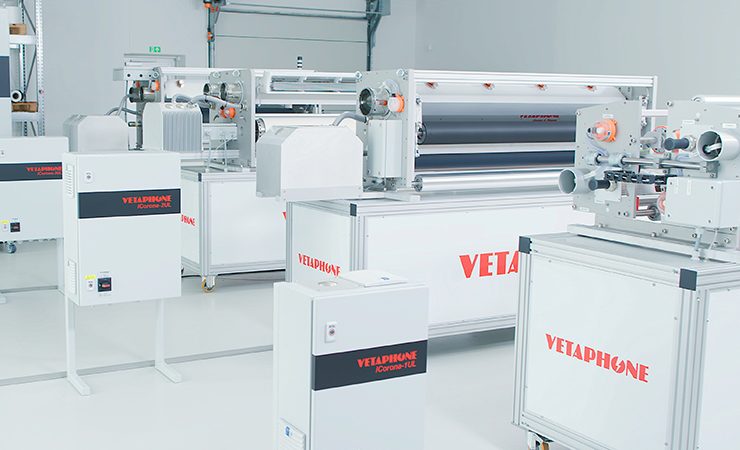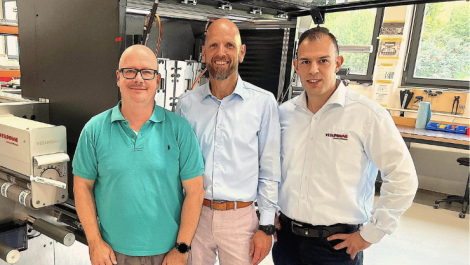Surface treatment specialist Vetaphone is marking the 100th birthday of company founder Verner Eisby, with his sons recalling the early years and continuing to honour their father’s legacy.
Mr Eisby was born in 1922, and whilst he had a keen interest in electronics from an early age, it was the end of the Second World War and the advent of plastic packaging that would help forge his legacy. Vetaphone came into being in the early 1950s, although the first inkling of what was to come pre-dates this, as detailed by his sons Frank, the company’s current CEO, and Jan, CSO.
Jan Eisby noted, ‘It was a chance meeting with a printer who was having difficulty getting the ink to adhere securely to this new plastic material without smudging on contact. He asked Verner for help, and after testing the ink and material in his small home workshop, he found that it all related to incompatible surface energy between the liquid and the solid.’
Frank Eisby continued, ‘Verner found that by passing an electric discharge over the plastic at close range he could change the molecular structure of the surface and improve adhesion. There is much more to that story, but fundamentally what he was doing back in 1951 is what we, and all other corona manufacturers, are doing today. And it all started on his work bench.’
Verner Eisby sadly passed away in 1993, however, the company he founded and the technology he created to help the packaging industry has continued to advance and progress over the following three decades.
‘We hope and believe he’d be very proud of how we have continued and developed his legacy,’ said Frank Eisby. ‘To be acknowledged as a world leading company is way beyond his imagination when he started back in 1951, and he’d be fascinated by how electronics and computer technology has been applied to basic science.
‘Today’s market is highly complex both in terms of the materials being used and the applications they are required to fulfil – without his inquisitive nature and passion for invention, the packaging market as we know it today could have been so different.’
Read more from Frank and Jan Eisby on their father and his legacy here



